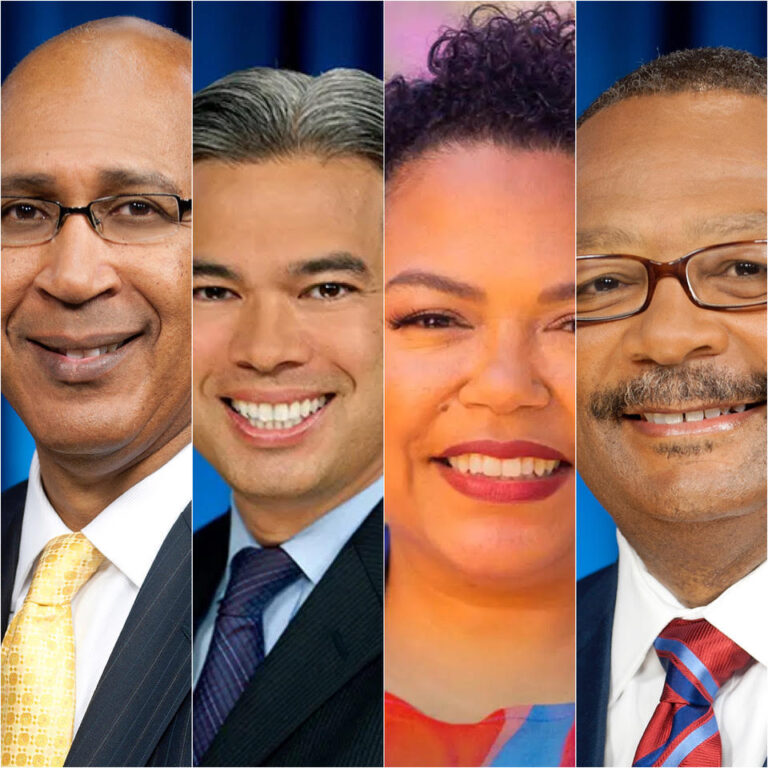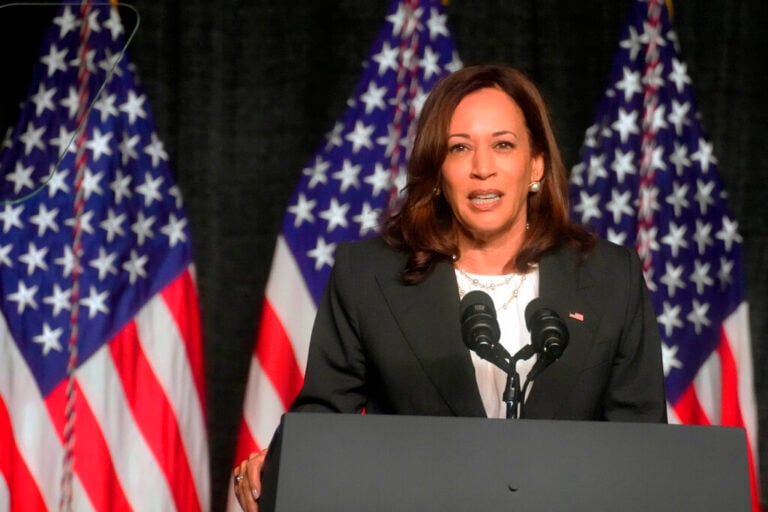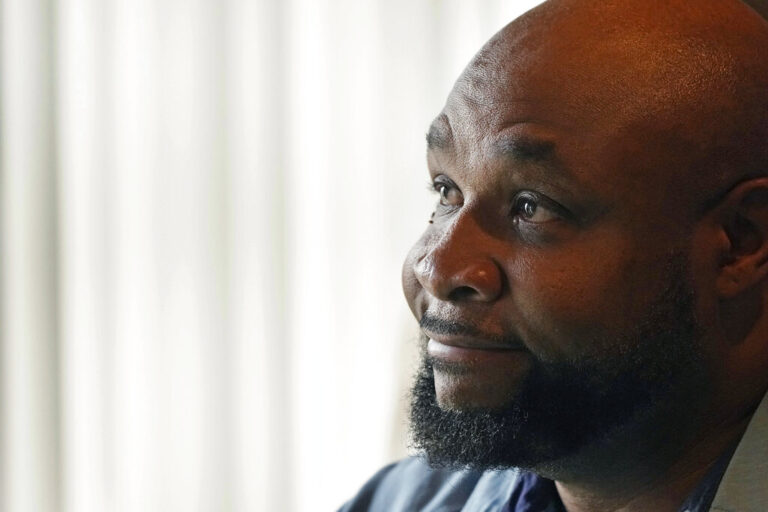By DARLENE SUPERVILLE and EVELYNE MUSAMBI, Associated Press
LOSITETI, Kenya (AP) — U.S. first lady Jill Biden got an up-close look Sunday at the historic East Africa drought as she walked along arid land and listened as some Maasai women described how their children and livestock are going hungry. She appealed for more countries to join the United States to help alleviate the suffering.
Some areas of the Horn of Africa have endured five consecutive failed rainy seasons, meaning there was no rainfall or an insufficient amount to help farmers with their crops and livestock. An upcoming sixth rainy season, beginning in March, is expected to be about the same or worse.
Biden, who was on the final day of a five-day visit to Africa, toured an outreach center in the town operated by World Vision with support from UNICEF and the World Food Program. She chatted with people who had brought their children to be screened for malnutrition and she participated in a discussion with a group of women, including a mother of 10 children, who shared their stories.
“They talked about how their livestock are dying. Obviously, you can see the drought here, how bad it is,” the first lady told reporters afterward. “The one source of water here feeds 12 villages and each village has approximately a thousand to 1,200 people.”
“So they are coming here, the people are coming to get water, they’re bringing their livestock to get water. But unfortunately, for many of them, the way they make their living is from their livestock and for most of them, the livestock are dying, so they’re having a hard time,” she said.
Biden noted that the United States has provided 70% of the money sent to the region to help alleviate the suffering, “but we cannot be the only ones.”

“We need to have other countries join us in this global effort to help these people of the region,” she said, adding that the drought was competing with humanitarian efforts tied to Russian’s war in Ukraine and an earthquake that killed tens of thousands of people in Turkey and Syria.
“I mean, there are a lot of competing interests but, obviously here, people are actually, livestock, people are starving,” she said.
Meg Whitman, the U.S. ambassador to Kenya, who accompanied Biden, said people know intellectually what’s going on in the region but “it’s different when you just see it.”
Underscoring Biden, Whitman said that “everyone needs to help as best we can here because this is going to continue for the foreseeable future.”
Members of the Maasai community, who are predominantly herders, live in Kajiado county where Biden visited.
Nearly 23 million people in Somalia, Ethiopia and Kenya are thought to be highly food insecure, which means they do not know where they will find their next meal, according to a food security working group chaired by the U.N. Food and Agriculture Organization and the regional Intergovernmental Authority on Development.
A Maasai elder, Mingati Samanya, 69, said he lost 10 cows during the recent prolonged dry season and struggled to find hay for the rest of his herd.
“The short rains last year were insufficient and right now we are back to struggling for pasture. We hope the long rains will be enough,” he told The Associated Press in a telephone interview.
Biden sought to use her stature to help focus the world’s attention on the worsening humanitarian crisis in East Africa by touring the drought-stricken area near Kenya’s border with Tanzania.
On the nearly three-hour drive south of Nairobi, the capital, Biden’s lengthy motorcade passed over dry river and creek beds. Numerous cows were walking alongside the highway — many so thin that their ribs were showing.
Throngs of people lined both sides of the motorcade route at various points, waving or using their cellphones to record the event.
Some 4.4 million people in Kenya are facing high levels of food insecurity, with the number projected to rise to 5.4 million in March, according to an analysis by the Integrated Food Security Phase Classification.
Already, 11 million livestock that are essential to many families’ health and livelihood have died. Many of the people affected are farmers who have watched their crops wither and die, and their water sources run dry.
Northern Kenya, which is arid and semi-arid and is where pastoralist communities live, is most affected.
The country’s agriculture sector heavily relies on rainfall, and the meteorological department is predicting delayed rains in the upcoming short rainy season that should begin in March.
President William Ruto announced last October that his cabinet had lifted a decade-old ban on openly cultivating and importing genetically modified crops. The decision came amid pressure from the U.S. government, which had argued that the ban affected U.S. agricultural exports and food aid.
Last week, Ruto led the country in praying for rain.
The first lady has been highlighting the drought along with women and youth empowerment since arriving in Namibia last Wednesday.
Biden had visited Kenya in 2011, when her husband, Joe Biden, was serving as vice president, to help raise awareness about what then was considered a severe famine. U.S. officials and aid organizations say the current drought is far worse.
About halfway through drive to Lositeti, the first lady traded her black SUV for a smaller one more suited for the rugged terrain ahead. The village was the final stop on a five-day, two-country visit that took her from Namibia, along the Atlantic coast in southern Africa, to Kenya in the east.
It was her sixth visit overall to Africa, and her first as first lady. She traveled with her granddaughter, Naomi Biden, who is 29.
Biden met throughout the week with young people, women and entrepreneurs as she promoted U.S.- backed programs that teach about HIV/AIDS, preventing infection and safe sex practices. Other programs she visited help people learn skills to find jobs or start businesses to support their families.
Along the way, she managed to make some news with her comments in an interview with the AP in which she gave the strongest indication yet that her husband will seek to be reelected in 2024.
Asked if the only thing left to do was to decide on when and where to announce the campaign, she replied, “Pretty much.”
The president, who later was asked about his wife’s comments, offered a more measured response, saying he had “other things to finish before I get into a full-blown campaign.”















